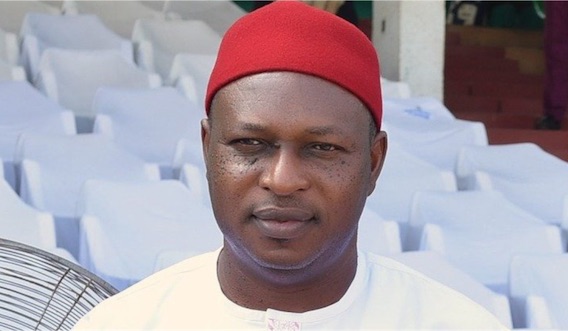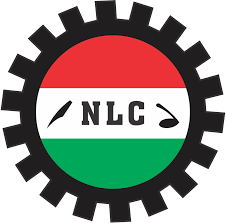Labour
The Imperative of Manpower Development in Ogun Civil Service

By Ebunlomo Taiyese Okuwa
The civil service refers to a sector of government that comprises workers that are employed on professional merit rather than appointment or election, with tenure that exceeds transitions of political leadership. Since Nigeria’s independence, the civil service has continued to be the largest workforce, serving as the engine room of government at both the federal, state, and local levels.
Its main function is to assist the existing political leadership in the formulation and implementation of policies that have direct impacts on the general public.Despite this value-based institution’s fundamental tenets of professionalism, loyalty, competence, neutrality, and high moral rectitude, its recent history has revealed a smear on the positive image it held in the past.
Today, outsiders have concluded that the civil service is replete with a lack of professionalism, corruption, and much misconduct. While this conclusion may be somewhat farfetched, especially from people who are not in the system, workers who gained employment in the system in recent years do not seem to sufficiently show that they have imbibed many of the principles and ethics of the service.It is also believed that the bureaucratic nature of this “engine room” of government continues to hold it back from catching up with new trends, which sometimes make the private sector a lot more productive. The truth is that the bureaucracy of the civil service was deliberately instituted to make policy formulation and implementation thorough, robust, and free of costly errors. This does not mean that the system lacks imperfections, many of which affect the quality of service delivery from the workforce. Lack of commitment and diligence to duty on the part of many young officers in recent years is one of such imperfections.
Two major reasons can be attributed as responsible for this reality. First, the “Service” is saturated with too many death weights, with the government having much more hands than it needs to perform its responsibilities. This is a problem borne out of the leadership’s compulsion to reduce the unemployment burden that has continued to grow every year. While the youths employed directly or indirectly in the mainstream civil service are no longer likely to cause problems for society, they end up adding up unneeded weight to the workforce.
Another reason for low commitment in the civil service is the fact that most graduates see a career in this sector as one that hardly promotes visions, dreams, and noble aspirations. As a consequence, those who accept employment into the service often do so half-heartedly, quietly working towards either taking offers from the private sector or travelling out of the country. This grossly affects the quality of their service delivery and contributes to a high turnover rate. The overall effects on the citizenry are huge one.
In order to reverse this trend, which is obtainable in Ogun State just like other states of the country, there is need to reform the recruitment processes into the civil service. While it is important for vacancies to be filled as and when due, the government must take time to ensure that the candidates employed are not only qualified but also ready to be of service to its employer.
Also, it goes without saying that this career path is one that is founded on service rather than a quest for riches. Anyone who takes the service as “a tentative job” while secretly looking for a more lucrative offer will hardly show commitment. This is ultimately to the disadvantage of government as it must cough out its resources to pay salaries and other entitlement for its workers all the same.
The implication of this is for the Civil Service Commission to make the entry process into the system a lot more rigorous than it was in the past. With its role analogous to that of the human resources department of private organizations, this agency is constituted by legislature to oversee the hiring and promotions of civil servants. It is however saddled with regulating the working conditions of these workers as well as promoting the values of the public service. In order words, getting the best hands to serve the people and ensuring that these people are sufficiently motivated begins with the Commission.
Given that there is presently a lot of workers who have spent a few of years in the Service but fall short of expectations, the Civil Service Commission needs to collaborate with the Bureau of Establishments and Training to focus on manpower development. On the surface, this looks at improving the effectiveness of workers. But, it comes with a more long term impact. Through a robust manpower development plan, the essence of being a career civil servant and the prestige that comes with it can be wired into their consciousness of young officers.
Reforms in the civil service, particularly in the area of operations, are equally of importance. Young officers need to have a sense of belonging right from the start of their career. Of course, the nature of the system is one of rigid hierarchy and top-to-bottom. However, top managements of Ministries, Departments and Agencies should begin to welcome innovative ideas from junior officers which will contribute to overall service delivery to the people. Also, this will lead to a reduction of turnover rate.
Already in place is the Public Service Transformation Office in Ogun State, with a mandate to facilitate the transformation of the Ogun State Public Service to perform effectively and efficiently for sustained improvement in service delivery to the citizens through technically competent and motivated staff using modern technology and in collaboration with stakeholders. This reform agency since its establishment has continued to work with MDAs to increase efficiency by helping them to determine mandate overlaps and instilling a paradigm shift in the mindset of officers.
In addition, the agency has identified fifty-two change agents across all MDAs and built their capacity on the need for reform with understanding that they would continue to champion reform in their respective spaces. The agency has also facilitated relevant capacity building opportunities for public servant, with special focus on the change of their mindsets towards service delivery. It is advisable that the PSTO be fully involved in the orientation programmes organized for newly-employed officers while also ensuring that they are aware of what they signed up for.
There is no gainsaying the necessity of manpower development for workers across the country. The results might be evident on the long run. But, its impact on the commitment and efficient of young officers could be instant. Sustained collaborations among the Civil Service Commission, the Bureau of Establishment and Training, and the PSTO in this regard will put Ogun State Civil Service on the right path, while also encouraging young officer to see the career as respectable and worthy of full commitment.
Okuwa, an Information Officer in the Ogun State Ministry of Information & Strategy, Oke-Mosan Abeokuta.
Can be reached via; 07066545954 or 08052125135.
Economy
Council Chairman Commends FG on Coastal Highway Project in Cross River.

From Ene Asuquo, Calabar
The Executive Chairman of Akamkpa Local Government Area, Hon. Felix Akposi has commended the Federal Government for the commencement of the Cross River State axis of the Lagos–Calabar Coastal Highway, describing the project as a monumental infrastructural breakthrough with vast potential for economic transformation across the state.
In a statement released to the press, Hon.
Akposi noted that Akamkpa, being among the host local government areas of the coastal highway, will strategically leverage the project to advance its developmental frontiers. He envisioned a rapid transformation in the area marked by the emergence of new towns, urban conurbations, and epicenters of agricultural and social tourism.According to the Chairman, “The intersection of the coastal highway with the Calabar–Ikom Highway will be a commercial hub, hence we are proposing an organized layout within the area. Accordingly, the Works and Infrastructure Unit of the Local Government Council is to synergize with the State Government and the Federal Ministry of Works to plan the layout within the axis.”
He further added, “We know that the demand for land within this axis will be very high in the coming days, hence it’s best to have a neatly planned layout before people will deface the area.”
Hon. Akposi used the opportunity to express deep appreciation to the Governor of Cross River State, His Excellency Sen. (Apostle) Prince Bassey Edet Otu, for what he described as proactive and pragmatic leadership. He described the governor as a strategic leader under whose watch the state has witnessed remarkable developmental strides.
“Just recently, the Vice President of the Federal Republic of Nigeria, Sen. Kashim Shettima, was here for the groundbreaking ceremony of the Special Agro Processing Zone in Adiabo. Today, we have yet another Federal presence in the groundbreaking ceremony for the Cross River State axis of the Lagos–Calabar Coastal Highway,” Akposi stated.
JUDICIARY
LG Autonomy: Supreme Court Judgment Meets Constitutional Order- Edeoga

Former Governorship Candidate of the Labour Party(LP) for the 2023 elections in Enugu State, Hon Chijioke Edeoga has hailed the Thursday ruling of the Supreme Court, which granted financial autonomy to the nation’s 774 LGAs.
Edeoga, in reaction to the judgment said in a statement in Abuja that the judgment was in line with the existing constitutional order.
“While it is suspected that the judgment may not meet the approval of advocates of political restructuring in Nigeria, there is no doubt that it accords with the demands of the existing constitutional order.
“The violation of the provisions of the Nigerian Constitution of the Federal Republic of Nigeria by governors of Nigerian states has been going on with flagrant impunity for many years and under different administrations since 1999.
“Local Government Areas, recognized in the Nigerian Constitution as the third tier of government and the one closest to the people, have been deprived of the funds needed for grassroots development, thus existing at the mercy of state governors,” he remarked.
He regretted that over the years, state governors have made local government funds their cash cows, receiving and dispensing as they deemed fit, and without regard to the development imperatives of the councils, their employees, and their respective peculiar development challenges.
“This abuse has given rise to situations where local councils are forced to queue on a strange breadline, where governors favour some local governments while sidelining others.
“The offices of the Economic and Financial Crimes Commission (EFCC) and other anti-corruption agencies are stacked with files bursting with evidence of abuse of local council funds by state governors, whose prosecution has been hindered by red tape and other inexplicable reasons” he noted.
The former Governorship candidate recalled that during his campaign for the Governorship of Enugu State, he highlighted the deplorable management of local council funds in Enugu State and vowed that council funds would be sacrosanct if he won the election.
He said as a former local government Chairman, he knew the importance of those funds and the leverage they provide for rural development, employment generation, and economic empowerment.
“My belief is that rather than treat council funds as a source of free money as most state governors see them, I would ensure easy and direct access to it by council chairmen as a means of ensuring that local government councils become complementary to the state government’s development efforts,” he stressed.
He said his intention upon assumption of office was to empower Local councils and noted that the judgment will minimize the tendency of some governors and state officials to favour their local governments of origin while sidelining others.
“I am particularly relieved that the administration of President Bola Tinubu has taken this rare positive step towards restoring the glories of local administration in Nigeria. “Those of us in the Enugu State chapter of the Labour Party see this as a step in the right democratic direction and must single out President Tinubu and the Attorney General of the Federation, Prince Lateef Fagbemi, SAN, for pursuing this judgement with a single-minded determination and patriotic purposefulness.
“While we commend the current administration for the rare courage and vision deployed in pursuit of this case, we must also advise against allowing the judgement to form another layer of entry in our Case Laws. Nigerians are excited by the judgement and are looking forward to the restoration it would bring to bear on rural development across the country, and would be displeased if deliberate political, judicial, and institutional efforts are not made to ensure that implementation.”
“This judgement, it must be emphasised, is a PUBLIC INTEREST MATTER and has reignited hope of a possible grassroots development renaissance among the progressive-minded people that are interested in the development of Nigeria and the wellbeing of everyone” he stated.
COVER
Minimum Wage: Labour Rules Out Strike, Awaits Tinubu’s Nod

By David Torough, Abuja
The Nigeria Labour Congress (NLC) has ruled out strike action earlier scheduled for Tuesday (today) to demand a new national minimum wage.
The NLC President, Joe Ajaero, made this known yesterday during the ongoing International Labour Conference taking place in Geneva, Switzerland.
Ajaero said organised labour cannot embark on strike today because the figures presented by the tripartite committee on minimum wage were with President Bola Tinubu.
He clarified that the submission of N62,000 as proposed by the government and the organized employers’ body with labour proposing N250,000 does not translate to labour accepting N62,000 as the new minimum wage.
“The tripartite committee submitted two figures to the President. Government and employers proposed N62,000 while labour proposed N250,00o. We are waiting for the decision of the President. Our National Executive Council (NEC) will deliberate on the new figure when it is out.
“We cannot declare a strike now because the figures are with the President. We will wait for the President’s decision.
“During the tenure of the immediate past President, the figure that was proposed to him was N27,000 by the tripartite committee but he increased it to N30,000. We are hopeful that this President will do the right thing. The President had noted that the difference between N62,000 and N250,000 is a wide gulf,” he said.
The NLC president also berated state governors under the umbrella body of the Nigerian Governors’ Forum for rejecting the N62,000 minimum wage proposal.
“How can any governor say he cannot pay? They cannot also be calling for the decentralization of the minimum wage.
“Are there wages decentralized? Governors whose states are not contributing a dime to the national purse and who generate pitiable Internally Generated Revenue (IGR) are collecting the same amount as governors whose states are generating billions of dollars into the FAAC.
“They should decentralize their salaries and emoluments first.
“So, where is the governor of Edo state, Godwin Obaseki getting his money from? He is paying N70,000 minimum wage. This is the type of governor that should be emulated and not the lazy ones,” he added.

























